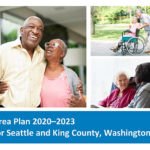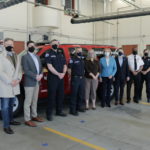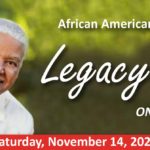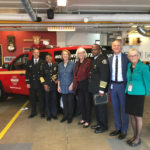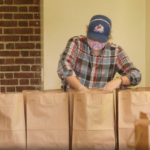Local Aging Services: Comment Now on Four-Year Plan Update
The draft Area Plan Update for 2022–2023 is available online at agingkingcounty.org/area-plan now through August 2. ADS invites public comment via e-mail and/or a public hearing scheduled at 10:30 a.m. on Monday, August 2, 2021. The public comment period will close at the end of the day, August 2. To sign up for public comment, visit surveymonkey.com/r/August2AreaPlanHearing. To send written comment, e-mail Karen.Winston@seattle.gov.
